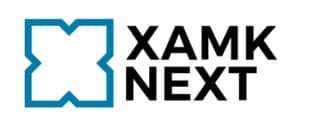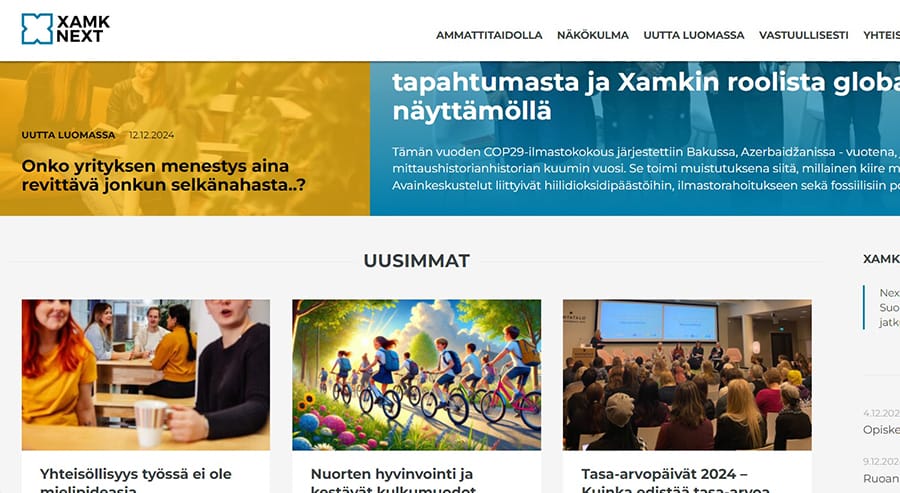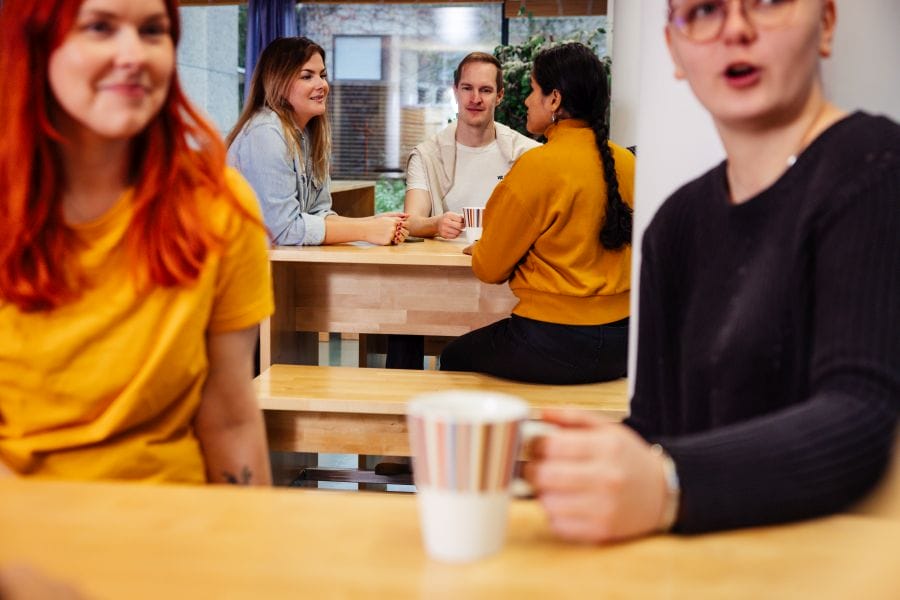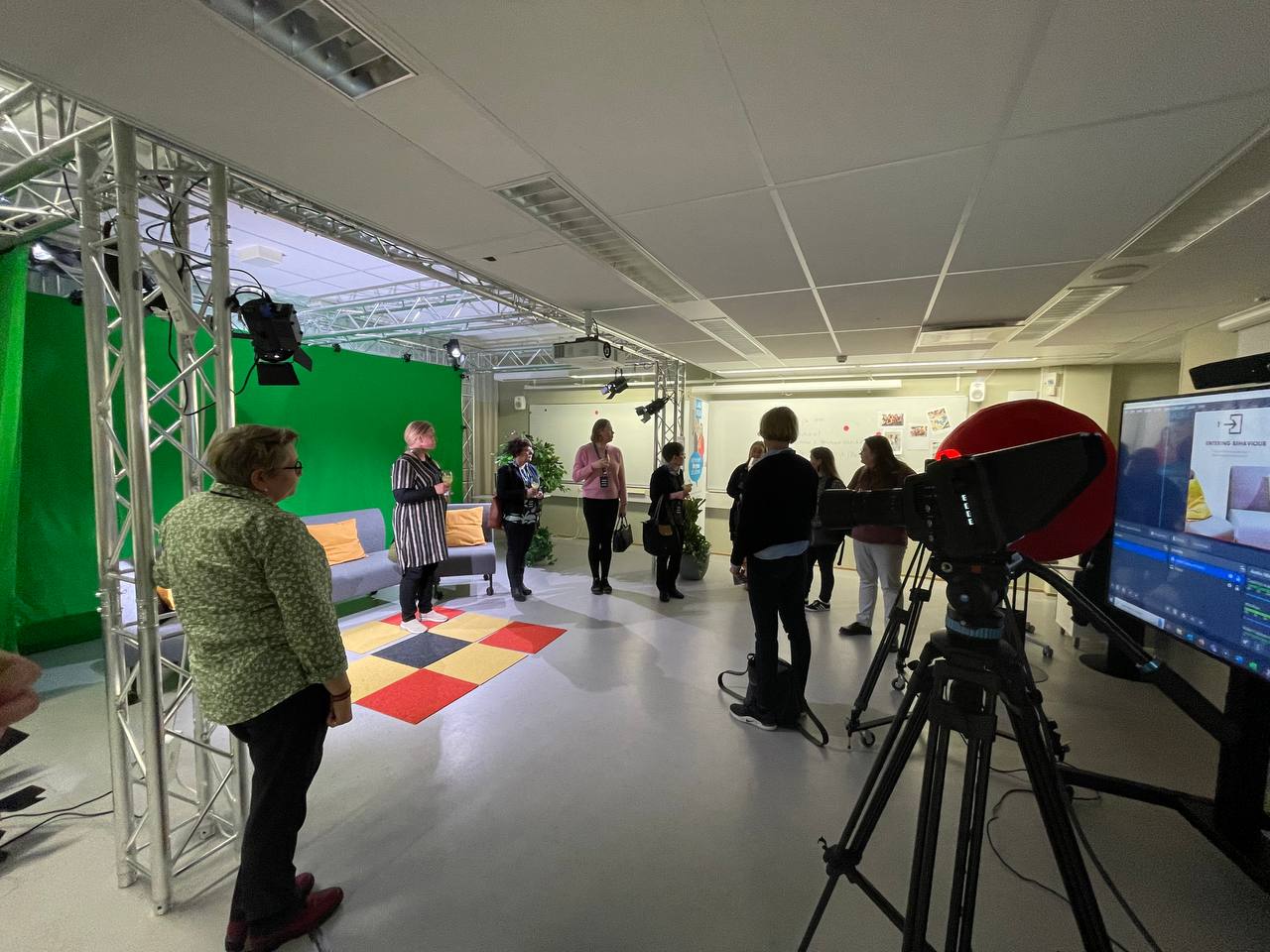AMK-päivät: digitalization, well-being, and internationalization
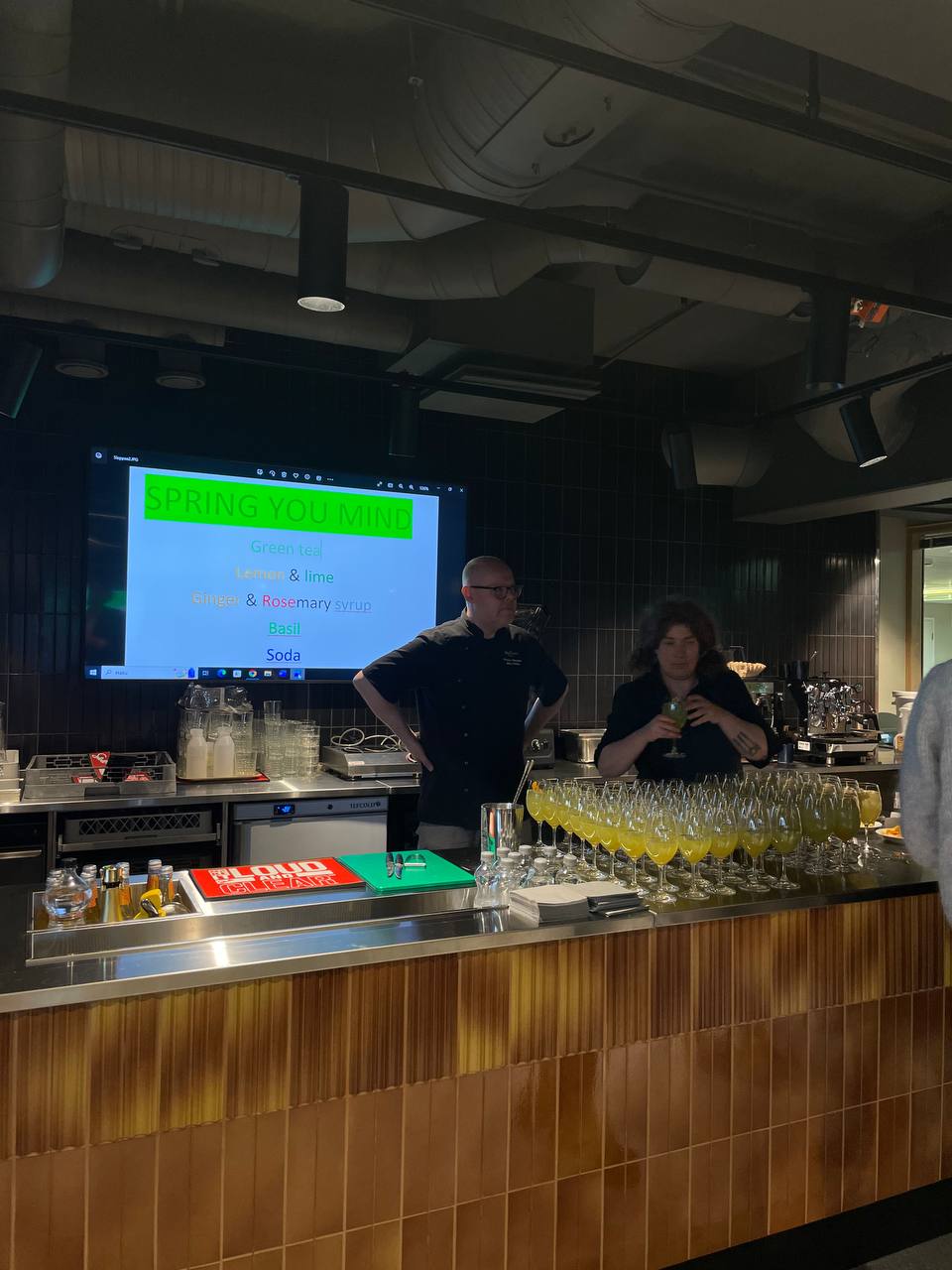
The event’s overarching themes were digitalization, well-being, and internationalization, with workshops focusing on pedagogy, security, and R&D. Attendees could participate in workshops or relax with panel discussions and tours of Laurea Living Labs.
The Edufication team is at the forefront of digital transformation at Xamk, revolutionizing learning through micro courses. We have attended a conference to keep up-to-date and connect with others in the field.
During the evening program, the team came up with some exciting ideas to enhance their program and transform education, written down on a napkin in the bar (but shh, it’s a secret!).
“Resilience is a new black”
 The event was inaugurated with a keynote speech by the renowned Jarno Limnéll, who shared his perspective on security.
The event was inaugurated with a keynote speech by the renowned Jarno Limnéll, who shared his perspective on security.
He emphasized the criticality of cybersecurity in contemporary society, identifying it as a top priority for governments and organizations.
He also underlined the necessity to streamline and reinforce strategic leadership to realize the cybersecurity vision.
According to Jarno, security can be expanded through the following concepts:
- It’s a reality: The world is transforming at an unprecedented pace, and it’s becoming increasingly complex.
- It’s a feeling: How we perceive reality and the emotions it elicits in us.
- It’s resilience: The capacity to retain essential characteristics even after a crisis, requiring resilience at all levels.
- It’s a culture: It’s our work culture, our values, and what we internalize.
“It was good to hear about the progress of Digivisio 2030”
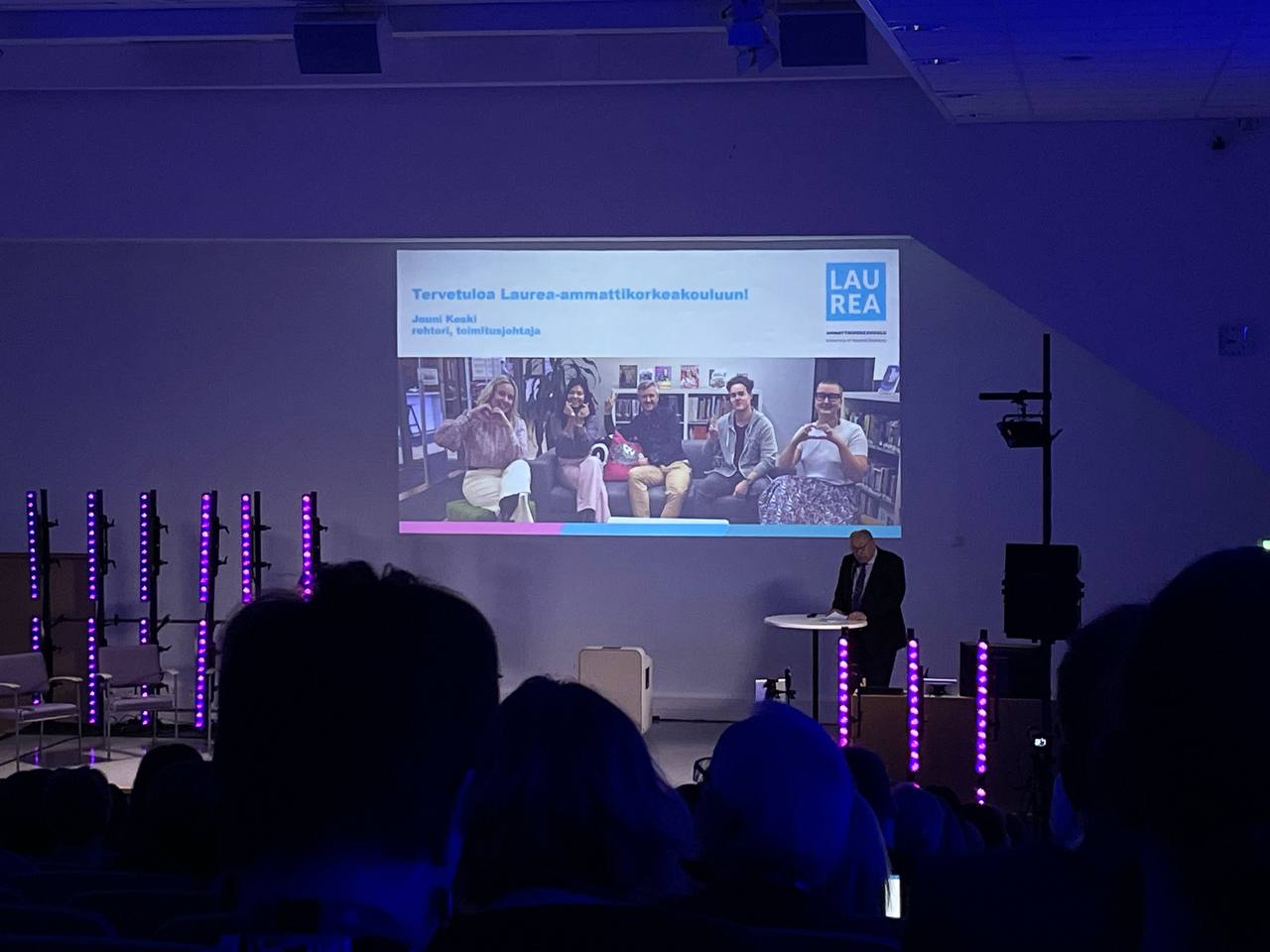 After that, we have joined to listen to the panel discussion titled ”Digivisio 2030 – dream or dystopia?” featuring five speakers: Antti Palola, the chairman of STTK, representing around 430,000 Finnish professionals and experts, Mervi Airaksinen, the CEO of Microsoft Finland, Hanna Nordlund, the project manager of Digivision, Marjo Valjakka, the information management expert and data protection officer at Laurea University of Applied Sciences, and Manu Pajuluoma, the director of IT and digital services at Lapland University Consortium and the chair of the IT directors’ network for universities of applied sciences in Finland.
After that, we have joined to listen to the panel discussion titled ”Digivisio 2030 – dream or dystopia?” featuring five speakers: Antti Palola, the chairman of STTK, representing around 430,000 Finnish professionals and experts, Mervi Airaksinen, the CEO of Microsoft Finland, Hanna Nordlund, the project manager of Digivision, Marjo Valjakka, the information management expert and data protection officer at Laurea University of Applied Sciences, and Manu Pajuluoma, the director of IT and digital services at Lapland University Consortium and the chair of the IT directors’ network for universities of applied sciences in Finland.
We have learned about the development of a new methodology for assigning credentials to micro-learning and are keeping up to date with Finnish and EU trends in micro-credentials, which we believe will be the next big thing in the field. Learn more here.
“We cannot just transfer offline teaching to Teams or Zoom, we need to design materials given all the sides of a new digital environment”
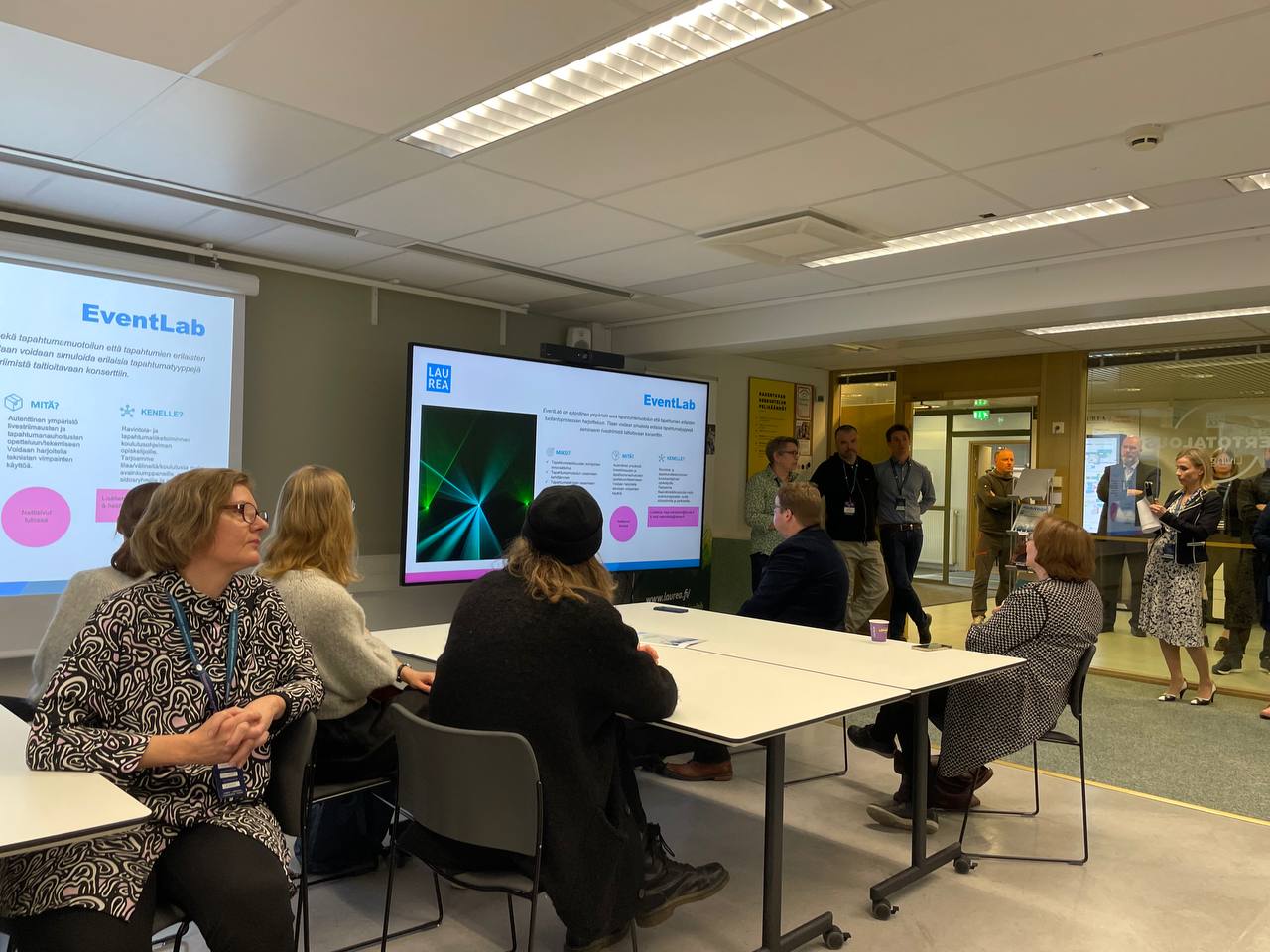 The team attended a workshop on how digital transformation can improve higher education. They discussed challenges and best practices, including using digital tools, designing effective online learning environments, and integrating pedagogical practices.
The team attended a workshop on how digital transformation can improve higher education. They discussed challenges and best practices, including using digital tools, designing effective online learning environments, and integrating pedagogical practices.
The workshop focused on addressing long graduation times and high dropout rates and emphasized the importance of digital pedagogy and quality of learning.
The participants engaged in brainstorming sessions, poster making, and collective discussions to develop practical strategies for enhancing education in the digital era. Examples of those were integration of collaborative platform in Laurea where students can work together and create without limitations of usual app like Trello, Miro and others, simulations organized online where facilitators are as important as teachers to make sure people have an educational and rewarding experience. Learn more here.
Living Labs concept from Laurea
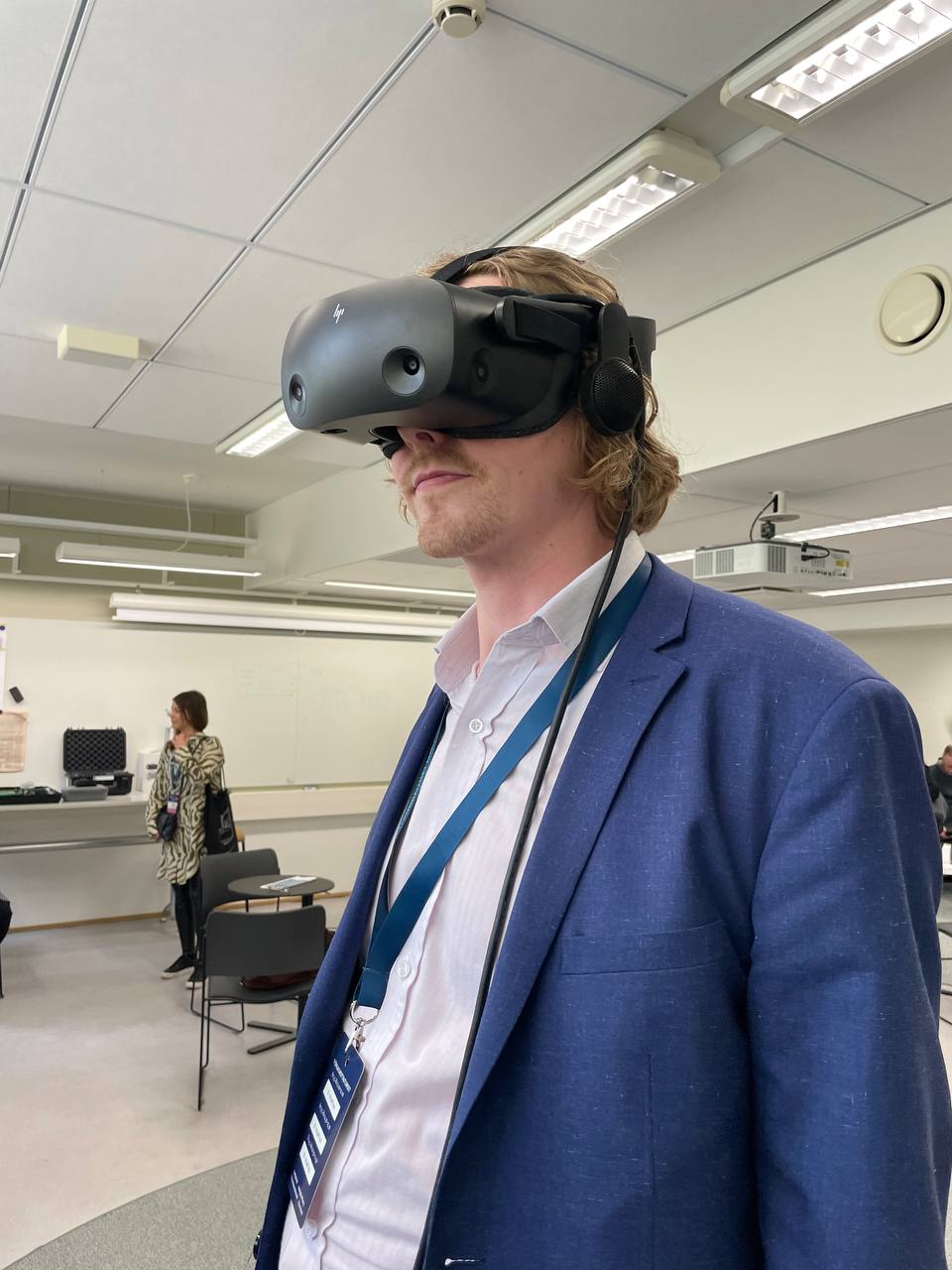
The Living Labs Network introduced by Laurea was the most exciting part of the day. Living Labs are real-life environments that stimulate creativity and foster new competencies related to innovation and co-creation.
Laurea integrates education, research and regional development through its Living Labs Network, which collaborates with various stakeholders to create and investigate new products and services. These Labs engage students in solving authentic problems and Laurea has permanent development environments on its seven campuses while hospitals, libraries, urban districts, and regions serve as living lab environments outside the campus.
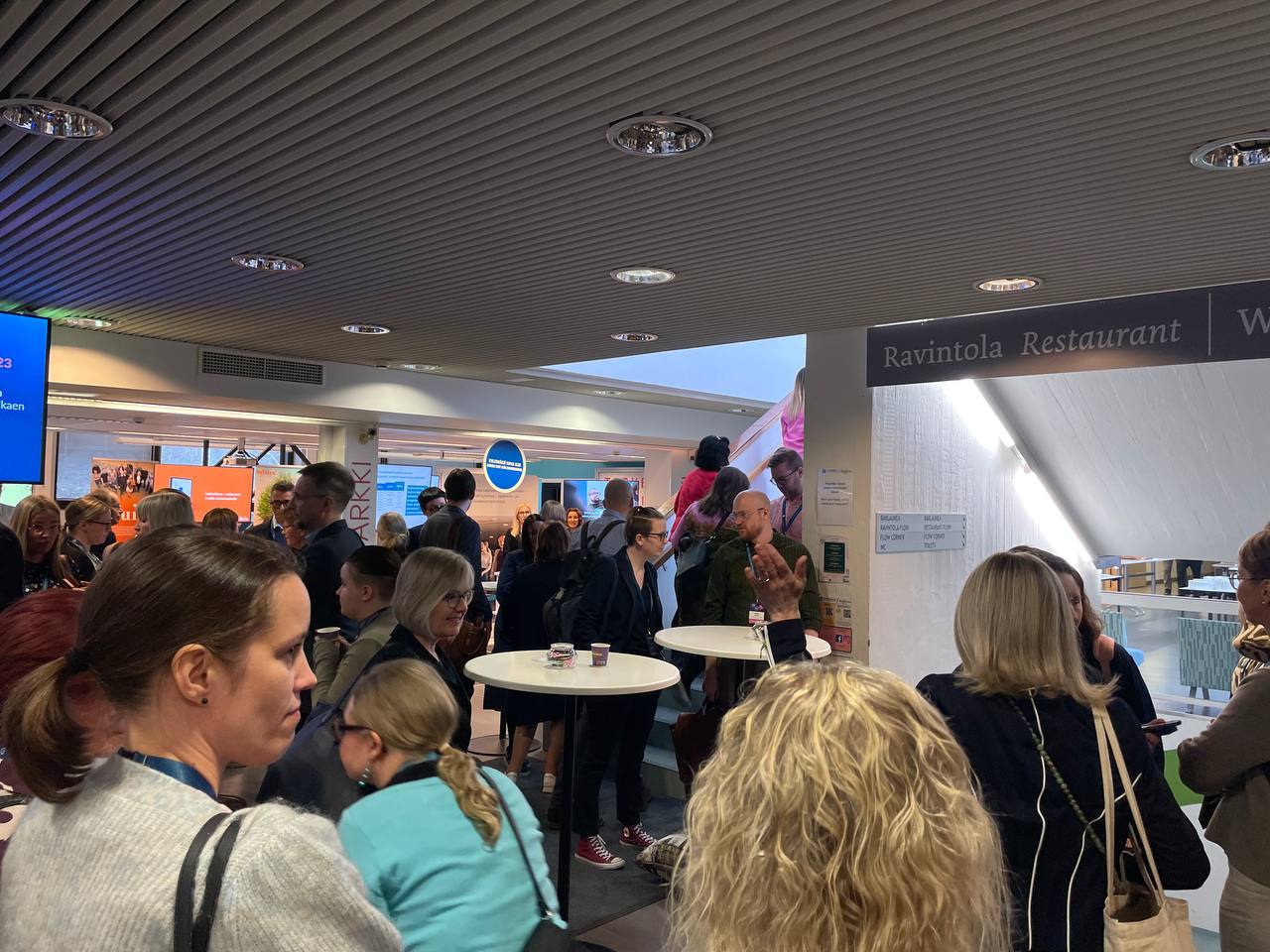
We toured a newly built studio designed for virtual events and learned that it has a strong draw for people passing by. We also visited a bar/restaurant that provides a platform for students to practice their cooking and barista skills. We were impressed with the quality of the drinks. By the way, they provide a 3-course lunch there for only 17 € (12 € for students) – and it is cooked in guidance of chefs that have been working at Michelin star restaurants
We give a strong recommendation for that if you are at Espoo. Finally, we were introduced to the digital room, where a range of experiments take place, including Arduino programming and Creative Labs workshops. The VR experiences, such as the realistic rollercoaster set in the Jurassic world, were especially captivating and demonstrated the potential of technology for enhancing education.
Networking
Meeting new and old connections is always rewarding. We hope to continue collaborating with Laurea on digital learning as well as open the room for new projects with the connections made during the event. After all, in the post-COVID world any face-to-face event (even the one that discusses the digitalization as an ultimate world-trend) feels like a breath of fresh air and always push us to innovative ideas.
Next year the AMK-päivät will be hosted by Tampere University of Applied Sciences – looking forward to that!
